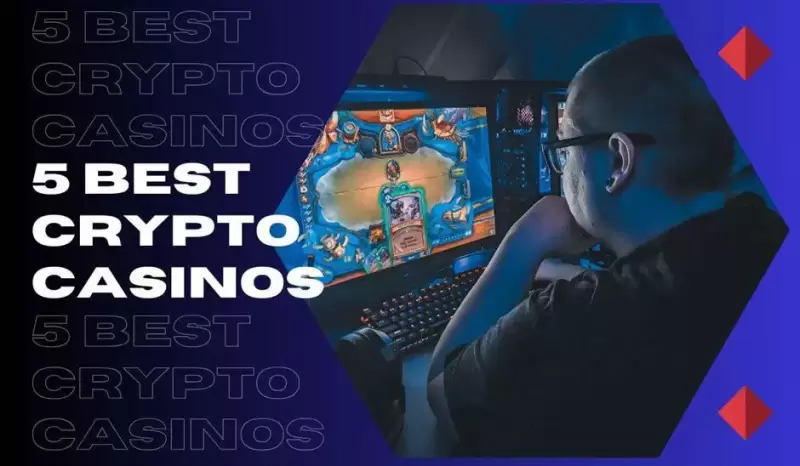 |
|
 |
|
 |
|
 |
|
 |
|
 |
|
 |
|
 |
|
 |
|
 |
|
 |
|
 |
|
 |
|
 |
|
 |
|
加密货币新闻
Bitcoin (BTC) Mining Pools Mull Altcoin Payouts as BTC Denomination of Work Becomes a Problem
2025/01/18 04:06

Operators of the world’s largest bitcoin (BTC) mining pools are quietly discussing a problem with BTC payouts. Despite mining BTC, securing BTC, and earning 100% of their revenue in BTC, pool operators are occasionally finding the currency itself to be cumbersome for paying their own workers.
Although all major BTC mining pools pay for work in BTC currently, a few are warming up to the idea of an altcoin as a superior payment method.
For months, developers and pool managers have engaged in deep discussions on technical forums like Delving Bitcoin around electronic cash (“ecash”) token alternatives to mining pool payouts. One of the discussion leaders, vnprc, has proposed a new form of eHash tokens that represent “liabilities” that can be “audited” using a so-called “Proof-of-Liabilities” protocol by Calle.
The irony of such a string of terms is apparent to any BTC maximalist: new token, new proof, and new protocol. BTC is supposed to be the preeminent peer-to-peer digital cash so why are developers busy inventing a new token to pay for pure BTC work?
How bitcoin is burdening mining pool payouts
Participating in a mining pool is normally not as simple as contributing work and receiving a percentage of the coinbase reward and transaction fees whenever your pool mines a block. (Bitcoin’s coinbase reward is currently 3.125 BTC per 10-minute block, or about $325,000.)
Unfortunately, pool operators face various idiosyncrasies with calculating miners’ level of computation, the pool’s costs since its last coinbase reward, and the inherent 10-minute transaction delays between Bitcoin blocks.
Altogether, these factors complicate an immediate BTC payout to pool members. Consider the delays necessitated by pool payout structures like PPLNS to illustrate this frustration.
Within some pool payout schemes like pay per last N shares (PPLNS), a member might need to wait days or weeks for the pool to find additional blocks prior to receiving their first payout. As the name suggests, pay only occurs for the last shares of work that actually earned money for the pool.
While the pool waits to win blocks, its miners must also patiently wait for their payouts.
Highly variable transaction fees also mean that affordable BTC payments might suddenly become unaffordable depending on the whims of the market, spikes in transaction fees, or hour of the day.
Worse, the BTC denomination of mining work — which fluctuates rapidly in USD price, unlike electricity — means that pools can occasionally allocate templated work to their members with a massive BTC change in USD value by the time the pool actually gets lucky enough to win its coinbase reward.
Work for generous tips, win small tips
The non-profit Bitcoin Optech illustrates this with an example of a pool that instructs its members to mine a template that would be worth 3.125 BTC coinbase plus a massive quantity of extra BTC worth of transaction fees.
(Transaction fees are “tips” from BTC users to miners that incentivize inclusion of their transaction in the earliest block possible. It’s not unheard of for transaction fees to exceed 10X the value of the coinbase reward.)
Suppose that a member contributes substantial work on this template, expending energy and computation to hash 10% of that pool’s share of that block. That member might be hoping for 10% of that block’s, say, 30 or more BTC — a great payday.
Then, infuriatingly, another pool solves the mathematical puzzle for that same block and wins all of its coinbase and transaction fees. Suddenly, the member’s hoped-for 10% of 30 BTC is worth $0.
Tragically, by the time that original member and its pool finally win their next block, transaction fees have cratered and the block they actually win is worth just four BTC — a far cry from 30.
In this case, many pool operators honor the original work assignment based on the old template that was worth 30 BTC and compensate workers from corporate reserves. (Over time, pool operators smoothe out payouts in this manner to avoid losing their workforce to other, more well-capitalized competitors.)
However, this strategy is unsustainable in the long term if the pool operator assigns high-fee, BTC-denominated work that fluctuates too often to the downside by the time the pool actually wins its blocks.
Working on ecash
One apparent solution to this problem is a non-BTC token that might take the form of a redeemable “share” of BTC pool payouts. This crypto asset derivative might take the form of a “PPLNS ecash share” that is traded on a secondary market and is linked to the BTC held by pool operators.
Other proposals are also underway that offer features like faster transaction times, better liquidity, financeability, and other value propositions.
免责声明:info@kdj.com
所提供的信息并非交易建议。根据本文提供的信息进行的任何投资,kdj.com不承担任何责任。加密货币具有高波动性,强烈建议您深入研究后,谨慎投资!
如您认为本网站上使用的内容侵犯了您的版权,请立即联系我们(info@kdj.com),我们将及时删除。
-

- $ 580〜 $ 1250
- 2025-04-07 19:50:12
- 一些报告表明,BNB试图在3月份恢复和打破某些阻力水平。人们已经谈到了BNB期货的交易量增加和兴趣。
-

-

- REMITTIX:一个解决实际付款问题的新Defi项目
- 2025-04-07 19:45:31
- 现实世界中的该解决方案解决了昂贵且效率低下的转移问题。它的效用对投资者显然有用
-

-

- 自2016年以来,交流中可用的以太坊数量刚刚降至最低水平
- 2025-04-07 19:40:11
- 自2016年以来,交流中可用的以太坊数量刚刚降至其最低水平。这是一个强烈的信号,因为链上的运动引发了兴趣的增长
-

-

-

- Dogecoin变得安静了……也许有点安静。
- 2025-04-07 19:35:12
- 经过长达数月的低迷,抹去了大选后集会并将价格降低到破裂前的水平后,Doge现在在关键的拐点处扎营。
-























































